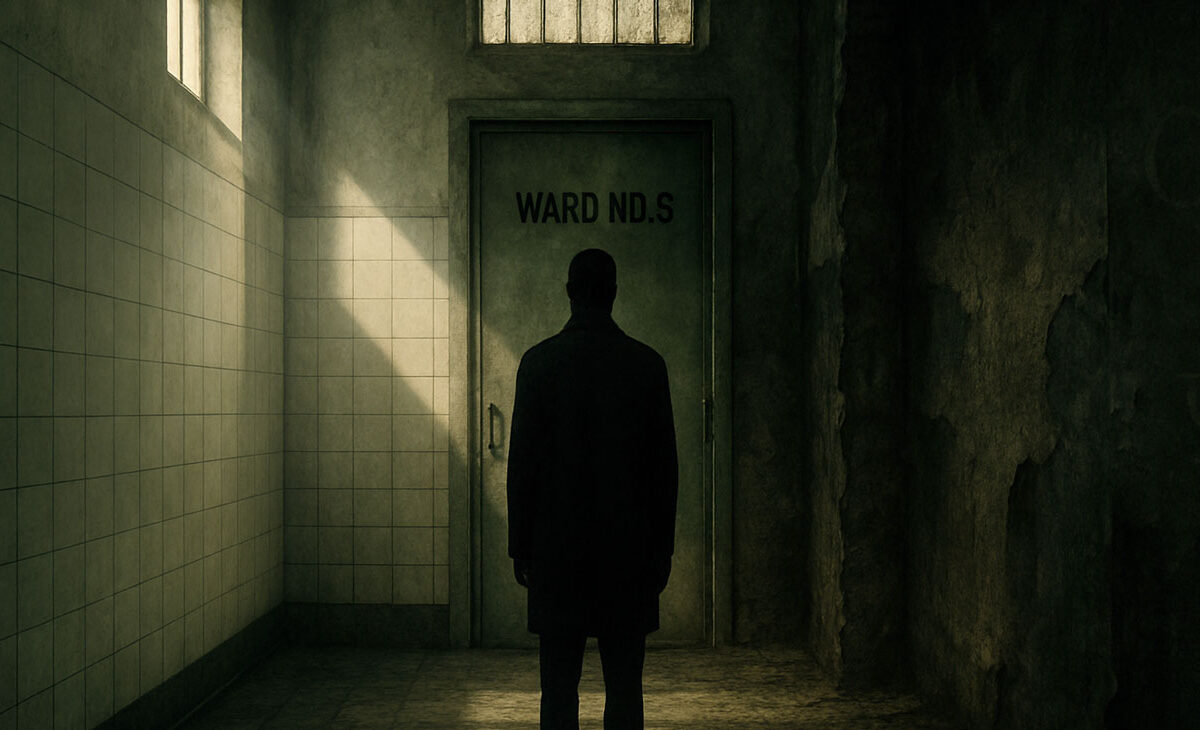Dr. Adrey Yefimych Ragin has for many years been the superintendent of a provincial town hospital. Initially, he was energetic and enthusiastic. He made hospital rounds every day, worked long hours in the clinic, and tried to keep up as well as he could with the latest medical developments, but as time went on, he became less interested and engaged in his work, which he considers “palpable futility.” None of it makes any difference. The hospital is poorly equipped and out-of-date because of social forces beyond his control. Ragin has developed the philosophy that, since “dying (is) the normal and legitimate end of us all,” there is no point in trying to cure patients or alleviate suffering. The endeavor is futile. While he accurately observes deficiencies in the hospital and in the surrounding society, he does nothing to try to remedy them. Instead, he withdraws to his apartment and spends his time reading.
At one point Ragin accidentally visits Ward #6, the mental ward, where he encounters Ivan Gromov, a brilliant patient, and strikes up a conversation with him. Gromov, who carries a diagnosis of paranoia, loves life passionately. His passion attracts Ragin, whose sensibilities are blunted by the emotional numbness from which many physicians suffer. Ragin is attracted to Gromov like a moth to a candle. He begins to visit Ward 6 daily to debate with Gromov. Since the other doctors never visit Ward 6, this behavior is considered very peculiar.
Ragin yearns to feel something, anything, even to experience suffering, rather than to remain suspended in his emotionless cocoon. He develops an obsession that only suffering can redeem him. This obsession makes him even more dysfunctional, a situation which allows a junior doctor to have him fired as hospital director and, ultimately, admitted to Ward #6 as mentally ill. Once Ragin has become a patient, a “nobody,” the ward orderly hits him, thereby giving him the opportunity to suffer. Shortly thereafter, he has a stroke and dies.
Enormous demands and poor working conditions contribute to Ragin’s predicament, but Chekhov suggests that Ragin’s character is also deficient. Something is missing. He experiences a sense of futility and numbness. Is this an inevitable consequence of medical practice? Or is he particularly vulnerable to burnout? The deeper theme in “Ward No. 6” is Ragin’s failure to live an authentic life, to discover a sense of wholeness and meaning in his existence. It is possible that Ragin’s early enthusiasm for hospital practice disguised the fact that he never came to terms with his own needs and values.
Lady With Lapdog and Other Stories
Anton Chekhov
David Magarshack (Ed.)
London, Penguin Books, 1964.
A previous version of this review was published in the NYU Literature, Arts, and Medicine Database (Litmed).















